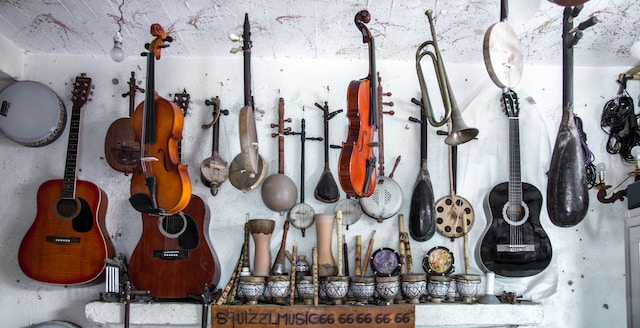The Musical, as a form of theatrical genre, appeared in the 19th century in the United States of America. It was inspired by genres such as operetta, vaudeville, and music hall, which had originated in Europe and spread to the United States. However, the Musical itself is a product of American culture as we know it.
One of the first famous Musicals, “The Black Crook,” was performed on Broadway in 1866 and is considered one of the earliest successful examples of this genre. “The Black Crook” was a combination of dance, song, special effects, and drama that were used to tell a story. This format became the foundation for future Musicals.
The Musical genre has been developing and changing over time, adapting to changes in society and culture. It continues to develop nowadays, incorporating elements from various musical styles and utilizing new technologies to create performances that are more intense and engaging.
The history of the musical’s development since the 1970s is presented below.
1. Modern Musicals (1970s to present): Modern Musicals have become more experimental in their forms and themes, including rock musicals like “Jesus Christ Superstar” (1971) and “Rent” (1996), as well as influential shows such as “The Phantom of the Opera” (1986) and “Les Misérables” (1985). Contemporary Musicals also focus on historical events or biographies, as seen in “Hamilton” (2015).
2. Disney Musicals (1990s to present): Disney has made a significant contribution to the musical genre by adapting popular animated films like “The Lion King” (1997), “Beauty and the Beast” (1994), and “Aladdin” (2014) into Broadway shows.
3. The Film Musical (1930s to present): Musicals have also gained popularity in cinema, from classic Hollywood musicals like “Singin” in the Rain” (1952) to contemporary films like “La La Land” (2016).
4. Musicals based on pop music (2000s to present): Musicals based on popular music by famous artists or bands have emerged in theaters in recent years, such as “Mamma Mia!” (2001), based on the music of ABBA, or “We Will Rock You” (2002), based on songs by Queen.
5. Digital era (2020s to present): With the development of technology, Musicals have embraced online platforms for streaming their shows, expanding their reach to wider audiences. Platforms like Netflix, Amazon Prime, and Disney+ now offer the opportunity to enjoy Musicals from the comfort of home.
Translation agencies play an important role in a growing globalised world as communication between different cultures and languages is becoming increasingly important. In the context of Musicals, this is especially crucial in the context of musicals, where language serves as the primary medium for expressing plot, characters, and emotions.
Translation agencies https://translation.center/de-uebersetzungsbuero-hamburg can influence musicals in several ways:
Translation of scripts and songs: To enable musicals to reach a wide international audience, translation agencies translate the scripts and songs into different languages, allowing people who do not understand the original language to enjoy the performance.
Localization: In addition to translation of the content, translation agencies can also localize it, adapting it to the cultural and social characteristics of the target country. This includes choosing appropriate slang, adapting humor, and ensuring cultural relevance.
Subtitling and dubbing: For stage productions of musicals, translation agencies https://translation.center often create subtitles or provide dubbing services. Subtitles allow non-native speakers to follow the story, while dubbing provides a complete audiovisual experience by translating the dialogue and songs into the audience’s native language
Digital technologies have also revolutionized the process of creating musicals. They allow for more efficient use of special effects, sound, and lighting, resulting in increasingly expressive and immersive performances. Furthermore, digital platforms facilitate the dissemination of music and other musical materials, contributing to the popularity and accessibility of musicals.
The European musical comes from operetta, according to the light opera, which emerged in the mid-19th century, especially in Austria and France. Over time, this genre expanded and gained popularity in Great Britain and other European countries.
Operetta has emerged in the mid-19th century. The most famous composers of this genre were Jacques Offenbach in France and Johann Strauss (Junior) in Austria. These lively and often satirical performances incorporated songs and dances.
As of today, musicals maintain their popularity in European theaters. This genre constantly evolves, adapting to societal and cultural transformations, and presenting a diverse range of styles and themes.



